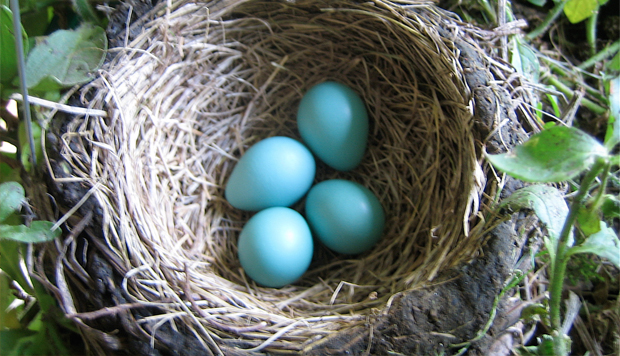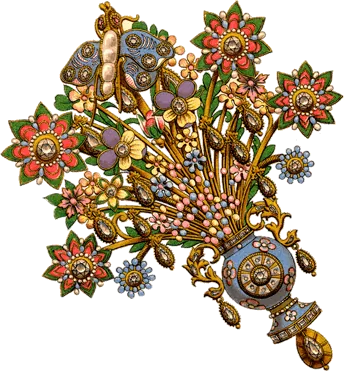Like Yeshua, the Sages of Israel alluded to the commandments of Torah in terms of light and heavy - the least and the greatest. Have you ever considered what constitutes a light mitzvah?
The Least Commandment
In the Besorah of Matthew, Yeshua reminds his audience of the importance of every mitzvah in the Torah:
“Whoever, therefore shall break one of the least commandments, and teach others to do so, shall be called least in the Kingdom of Heaven; but whoever shall do and teach them shall be called great in the Kingdom of Heaven (Mat. 5:19).”
Many of us are familiar with these words. The thrust of the statement is that all of the commandments are critically important; and to drive the point home, Yeshua alludes to “the least of the commandments.” The Sages record a similar statement in the Mishnah:
“Be careful with a light mitzvah as to a heavy one, as you do not know the assigned reward of the mitzvoth (Pirkei Avot 2.1).”
Have you ever wondered what are the least of the commandments? Like the Sages, Yeshua also alluded to the commandments of God in terms of light and heavy when he made reference to “the weightier matters of the Law” (Mat. 23:23). It would seem that Yeshua and the Sages of Israel perceived an inequality among the commands of God. Does this mean that there are some commandments that are more important than others?
In Parshat Ki Tetzei (Deut. 21:10-25:19), the Torah records what has traditionally been understood as the ‘least of the commandments’:
“If you happen to come upon a bird’s nest along the way, in any tree or on the ground, with young ones or eggs, and the mother sitting on the young or on the eggs, you shall not take the mother with the young; you shall certainly let the mother go, but the young you may take for yourself, in order that it may be well with you and that you prolong your days (ibid. 22:6-7).”
This fascinating mitzvah is famously known in Judaism as shiluach haken (sending away the mother bird). As renowned as the mitzvah may be, it is equally perplexing for the uninitiated in Torah. Essentially, the Torah states that if a person finds a bird’s nest and wants to take the eggs, it is imperative to send the mother bird away. Only then may the eggs or the young be taken for human benefit.
Before we explore the meaning of shiluach haken, we must endeavor to understand the qualifications of a light commandment. In reference to the earlier statements, both Yeshua and the Sages couple the perceived value of mitzvoth with the concept of reward. Yeshua says, “whoever shall do and teach them shall be called great in the Kingdom of Heaven.” And the Sages say, “Be careful with light mitzvah… as you do not know the reward.”
For a moment, let us consider the reward or retribution of one mitzvah compared to another. When most people think of the Law of Moses, many consider the dietary laws. Relatively speaking, there is an imbalance between the laws of kashrut and say, the negative command concerning murder. The discrepancy in weight can be perceived in the aftermath of the transgression. In the case of murder, the perpetrator is deserving of death (Lev. 24:17). Yet, if a Jew happens to eat something that is not kosher, he or she will do mikvah and be unclean until evening (Lev. 17:15). According to the procedure required for both transgressions, it is axiomatic that the prohibition of murder is much heavier than the prohibition against consumption of non-kosher food.
Alternatively, it can be argued that some commandments are easier to keep than others. For example, in the days of the Temple, if an individual wanted to bring an offering they had to pay the price of the korban. Even today without a Temple, there are many mitzvoth that necessitate a financial loss. For example, the purchase of tallit or tefilin, hosting an Erev Shabbat meal, or sponsoring a wedding or Bar Mitzvah. These mitzvoth require an investment of time and money, and take more effort than other mitzvoth that can be performed at no cost. In this regard, some mitzvoth are heavier [and lighter] than others. Concerning shiluach haken, the Midrash Tanchuma states:
“There is no easier mitzvah [to perform] than sending away the mother bird from the nest. And what is its reward? ‘So that you will live long.’”
In consideration of the latter example, the midrash explains that there is no easier mitzvah in the Torah to perform than sending away the mother bird. Anyone can do it without financial loss or concern that there will be retribution for failing to perform it. Thus, the imperative to send away the mother bird is a light commandment! Invariably, this is an example of the type of command Yeshua had in mind when he spoke concerning “the least of the commandments.”
With that said, what on earth is going on with this commandment? In addition to explaining that there is no consequence for failing to perform shiluach haken, the Sages are quick to remind us that there is a reward associated with it. In fact, as perplexing as shiluach haken may seem, the Torah actually attaches one of the greatest rewards promised in the Torah: “in order that it may be well with you and that you may prolong your days (Deut. 22:7).”
Raising the stakes, it is noteworthy to mention that the mitzvah of shiluach haken is only one of two mitzvoth in the entire Torah that carries this lofty reward. The other is the command to honor our parents:
"Honor your father and your mother, as the LORD your God has commanded you, that your days may be prolonged and that it may go well with you in the land which the LORD your God gives you (Deut. 5:16)."
A closer look at the Torah reveals that sending away the mother bird is equivalent to the reward associated with respecting our parents! How can this be? How can a light commandment and heavy commandment carry the same reward? This is why the Sages say, “be careful with a light mitzvah as to a heavy one, as you do not know the assigned reward…”
Is it mere coincidence that these two mitzvoth are equated to each other? Or is there an important mussar (ethic) to be taken from these related passages? For a moment, let us consider what actually happens when the mother bird is shooed from the nest. She goes ballistic! The mother bird searches for her young and does everything imaginable to find her babies! All the while, the individual performing the mitzvah observes the behavior of the mother bird, and plays witness to an important object lesson: Just as this creature of nature demonstrates concern for her nestlings, the same is true about human fathers and mothers – Parents have the same instinctual compassion for their children.
Likewise, God is like a father and a mother to Israel (Hosea 11:1). And what can be said of someone who seeks to disrupt this beautiful relationship? God does everything in His power to return us to Him. Shockingly, we find this characteristic of God in the very words of shiluach haken. The word for bird, tzipor, contain the same root letters (צפר) used to spell the word poretz (פרץ), which is one of the names associated with the Messiah:
One who makes a breach [ha’poretz] goes before them; they enlarge it to a gate and leave by it. Their king marches before them, the LORD at their head.
In a jaw-dropping analogy, Yeshua alludes to himself as the mother bird when he laments over Jerusalem:
“Jerusalem, Jerusalem, who kills the prophets, and stones those who are sent to her! How often I would have gathered your children together, even as a hen gathers her chicks under her wings, and you would not (Mat. 23:37).”
The importance of even lightest mitzvah is self evident. Just as we are obligated to respect and demonstrate our appreciation for the self-sacrificing love that we see in the mother bird, and our own parents, so we see in God’s love of for Israel, and the character of the Messiah himself.


